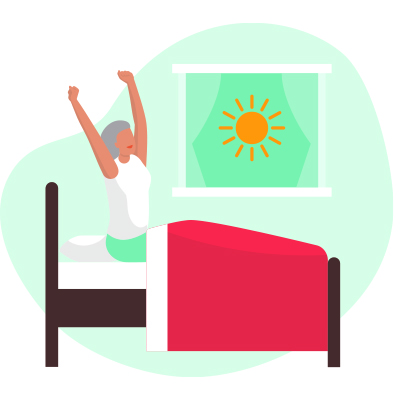Your metabolism after 60: Stay healthy and lean
New landmark research shows that we experience our first metabolic slowdown after age 60. That shift can lead to weight gain and feeling less energetic. But some older adults maintain their calorie burn in defiance of their chronological age. What’s their secret? We sorted through the hype to find the habits that really move the metabolic needle.

Strength training is key.
“It’s maybe even more key than aerobic exercise,” says Garrett Kellar, Ed.D., an assistant professor and program director for the exercise physiology and science department at Youngstown State University. The reason? The more muscle you have, the more calories you’ll burn.
Absolute beginners might start with simple chair stands (standing from a seated position), wall pushups, or toe raises while standing at the sink. (Always check with your doctor before starting a new workout routine.) As you progress, Kellar recommends incorporating resistance bands or improvised weights like soup cans or full water bottles.
Take time out to relax.
Chronic stress is associated with a host of health problems, from obesity to heart disease to type 2 diabetes. Blame it on the stress hormone cortisol, which slows your metabolism to free up more energy for fight-or-flight. You can lower your cortisol levels — and reboot your metabolism — by practicing relaxation techniques like mindfulness, meditation, yoga, and deep breathing.
Eat more protein.

Protein boosts metabolism in two ways: by contributing to muscle growth and by requiring more energy to digest. “You want to maintain your caloric intake but increase your protein as you age,” Kellar notes. “If you cut calories too much, metabolism can slow.” Find out how much protein you need (you may have to double your current intake!) and 20 delicious ways to sneak it into your diet here.
Get enough sleep.
There is ample scientific research that shows quality sleep is important to maintaining a healthy metabolism. Night owls are at higher risk of weight gain, and not just because they have more time to eat (and tend to make poor choices in the wee hours). The hormone melatonin, which regulates our sleep-wake cycle, also plays a role in metabolism and maintaining a healthy weight. Older adults should aim for 7 to 8 hours a night.



